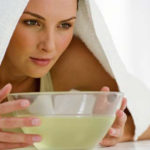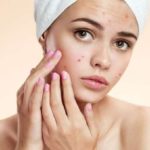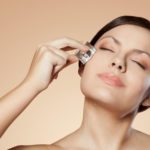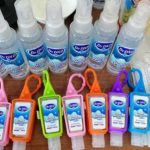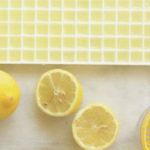Surely, many of us have dealt with the frustrating issue of acne. Treating acne is a lengthy process that requires an understanding of the active ingredients used in effective acne treatments. In this article, we will explore five recommended substances for treating acne, as suggested by dermatologists.
1 Benzoyl Peroxide
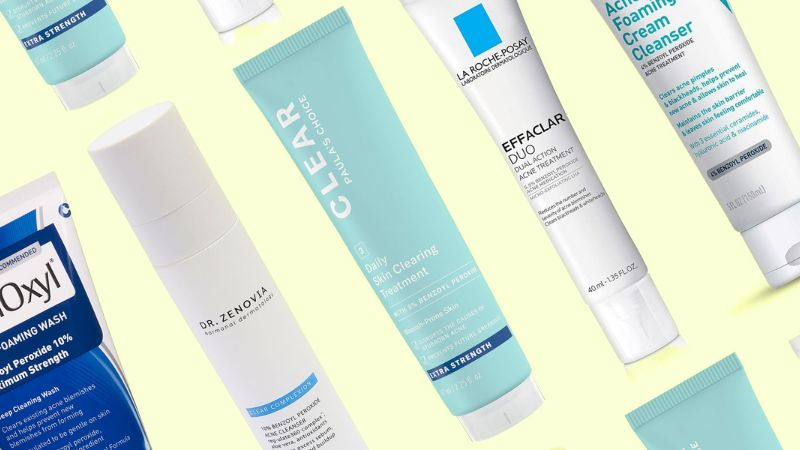 Benzoyl peroxide
Benzoyl peroxide
Benzoyl peroxide is a leading ingredient in acne treatment. It is an antibacterial substance commonly found in acne products, particularly effective for inflammatory acne. When applied to the skin, this active ingredient breaks down into benzoic acid and oxygen. The oxygen helps kill the P.acnes bacteria, while the benzoic acid exfoliates dead cells, removes sebum, and deeply cleanses the pores.
However, it is important to note that benzoyl peroxide can cause irritation. Therefore, it is recommended to start using products with the lowest concentration and gradually increase the concentration over time.
2 Tea Tree Oil
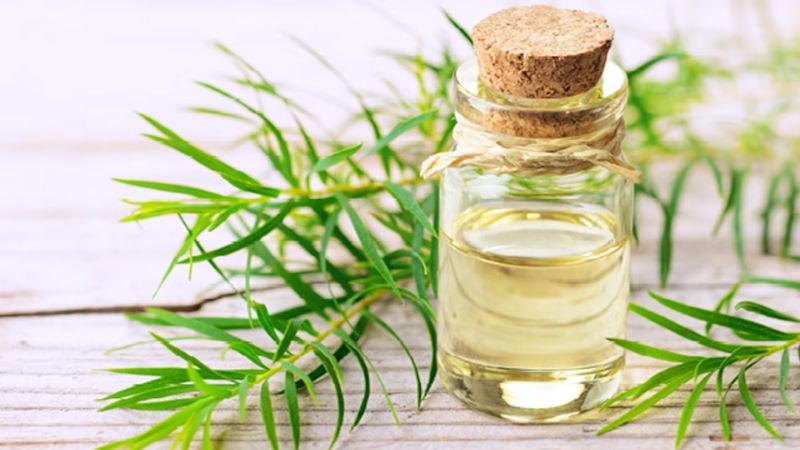 Tea tree oil
Tea tree oil
Tea tree oil is derived from the leaves of the Melaleuca Alternifolia tree, commonly found in wetlands near Australian coastlines. It has a pale yellow color and numerous beneficial properties such as antibacterial, anti-inflammatory, antifungal, and the ability to reduce skin reactions. Tea tree oil is especially effective in treating acne and accelerating the healing process of acne-related wounds.
To use tea tree oil, simply apply a drop to inflamed red pimples and itchy skin areas using a cotton swab. Applying 5% tea tree oil has the same effect as applying 5% benzoyl peroxide for treating acne. However, tea tree oil is a natural ingredient and is generally less irritating to the face compared to benzoyl peroxide.
3 Salicylic Acid (BHA)
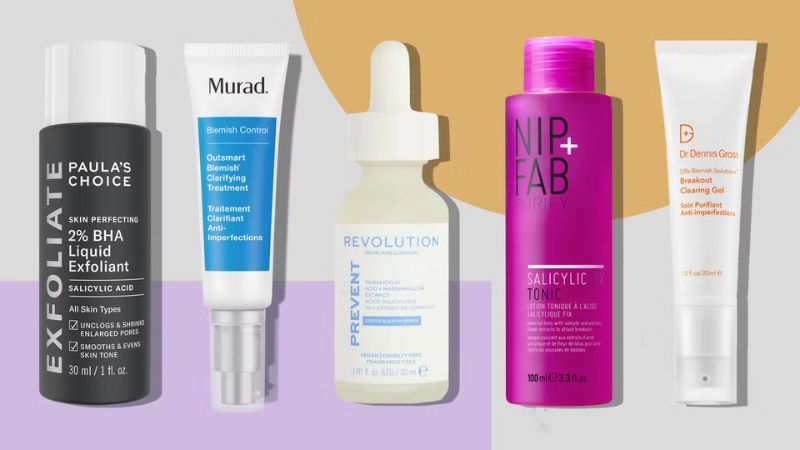 Salicylic acid (BHA)
Salicylic acid (BHA)
Salicylic acid, also known as Beta Hydroxyl Acid (BHA), effectively treats acne by exfoliating dead cells, deeply cleansing the skin, and keeping the pores open. It also helps stimulate the production of new cells, resulting in brighter, acne-free skin.
Salicylic acid works best for treating cystic acne, blackheads, and whiteheads, and preventing acne recurrences. However, it is important to note that salicylic acid can cause side effects such as pushing acne, dry skin, or redness. It is recommended to consult a dermatologist before using products containing salicylic acid to ensure a suitable treatment regimen.
4 Glycolic Acid (AHA)
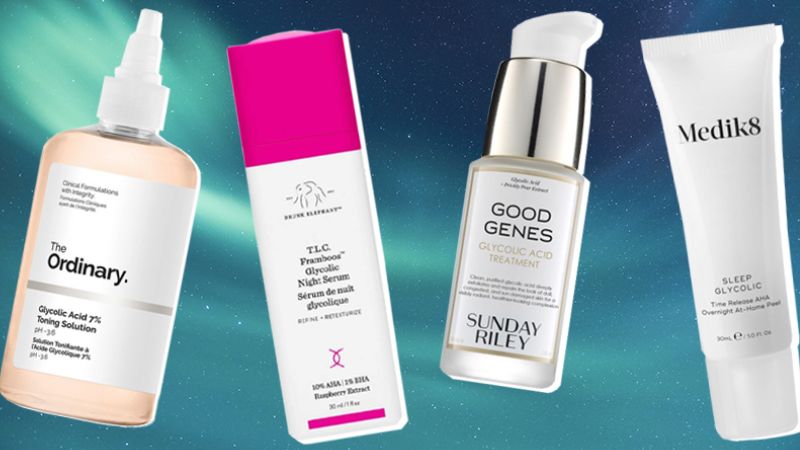 Glycolic acid (AHA)
Glycolic acid (AHA)
Glycolic acid is an alpha hydroxy acid (AHA) derived from natural fruits such as sugarcane, orange, and lemon. It is considered a natural acne treatment substance with similar properties to BHA. However, unlike BHA, glycolic acid works on the surface of the skin, removing dead cells and keeping the pores clear. It also reduces sebum production, prevents acne growth, and facilitates the removal of acne and acne scars.
Additionally, glycolic acid easily penetrates through the layers of the epidermis, making it effective in fading dark spots, stimulating cell regeneration, smoothing wrinkles, and preventing skin aging. It is suitable for dry skin and helps treat blackheads, whiteheads, and mild to moderate inflammatory acne.
5 Retinol
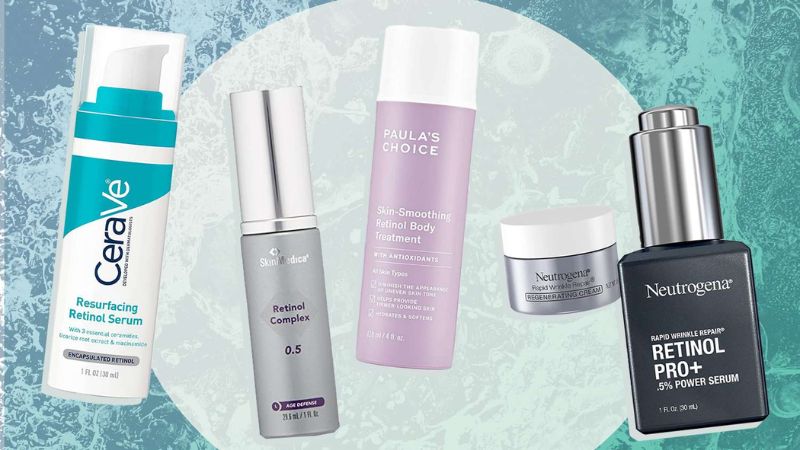 Retinol
Retinol
Retinol is a highly trusted active ingredient known for its various benefits. Derived from retinol, it stimulates collagen and elastin production, reduces signs of aging, and nourishes the skin, resulting in a soft, smooth complexion. It is also highly effective in treating acne, reducing redness, inflammation, and bacteria accumulation. Furthermore, retinol acts as a cleanser of dead cells, removes dirt and excess oil, prevents clogged pores, and reduces acne scars, leading to radiant skin.
6 Sulfur
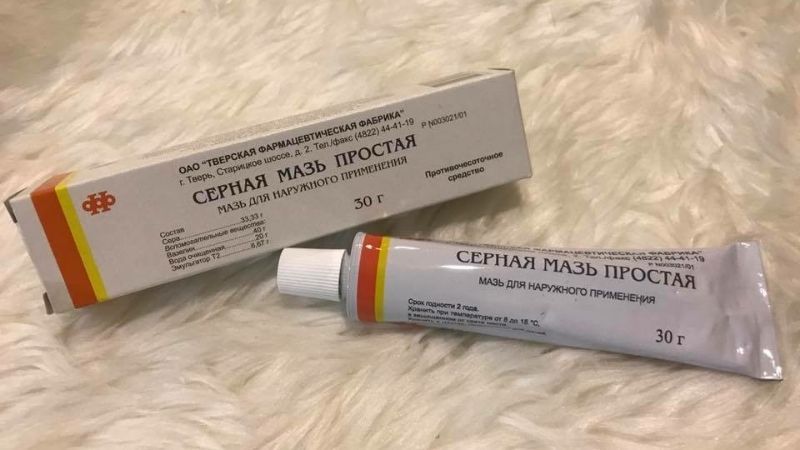 Sulfur
Sulfur
Sulfur is a mineral commonly used to treat various skin problems, including cystic acne, blackheads, and inflammatory acne. Its dehydrating properties on the skin’s surface help cleanse the skin, remove excess oil from the pores, and prevent the growth of acne-causing bacteria. Sulfur also reduces swelling and inflammation caused by acne, providing relief to the skin. It is often used in acne spot treatments or face cleansers, but it is recommended to consult a dermatologist before using any acne treatment products to ensure their suitability for your skin.
7 Azelaic Acid
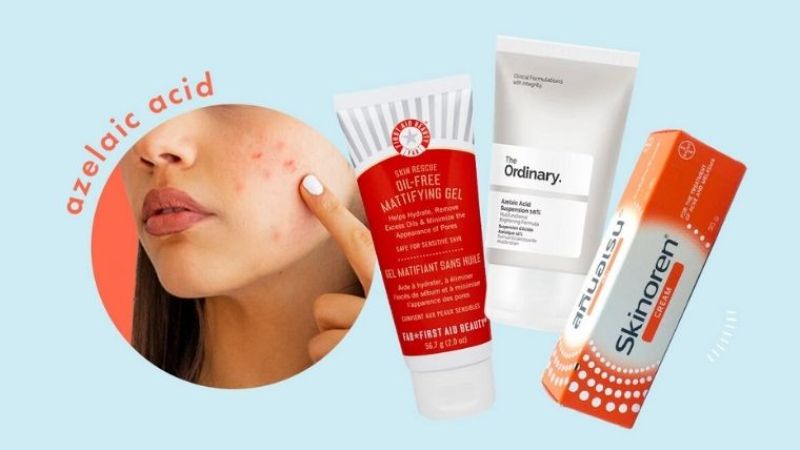 Azelaic acid
Azelaic acid
Azelaic acid is an organic acid found in wheat, soybeans, and hazelnuts. It is a highly effective acne treatment substance, particularly for cystic acne and inflammatory acne. Azelaic acid has effective antibacterial and anti-inflammatory effects, soothing the skin and reducing redness in inflamed areas. It also has the ability to limit melanin production, therefore fading acne scars and improving skin tone. It is recommended to test products containing azelaic acid on a small area of the skin first to ensure there is no irritation before using it more extensively.
Through this article, we have introduced five ingredients that are highly effective for acne treatment, as recommended by experts. We hope you find this information useful in maintaining healthy and beautiful skin!
“Creating DIY Hand Sanitizer with Medical Alcohol According to WHO Guidelines”
With the rise of coronavirus pandemic, the demand for hand sanitizer has skyrocketed, leading many to make their own at home. The World Health Organisation (WHO) guidelines offer tips on how to make dry hand sanitizers to fight against illnesses, combining medical alcohol with other ingredients for efficient protection. Read on to find out what you need to know.


























